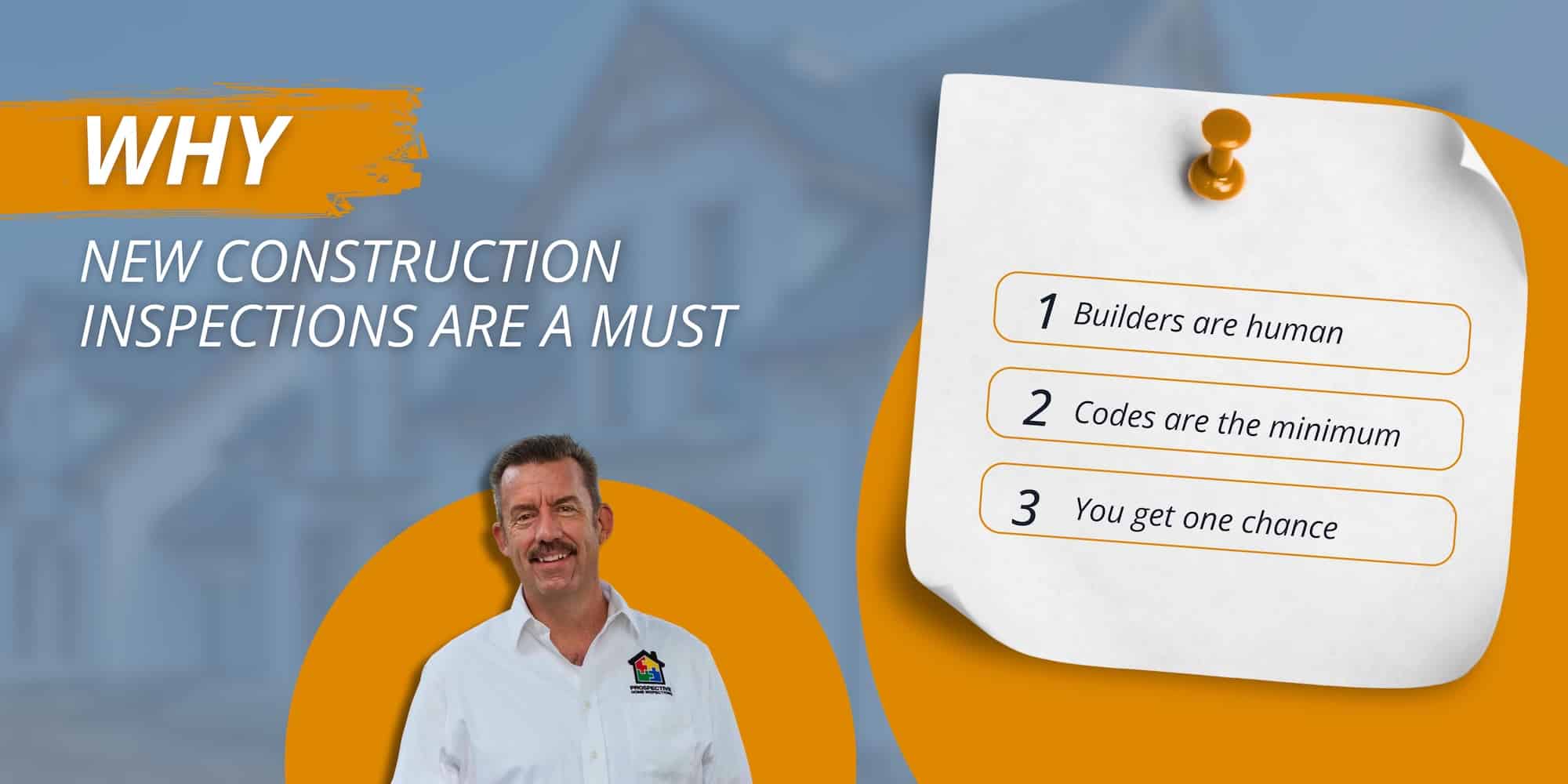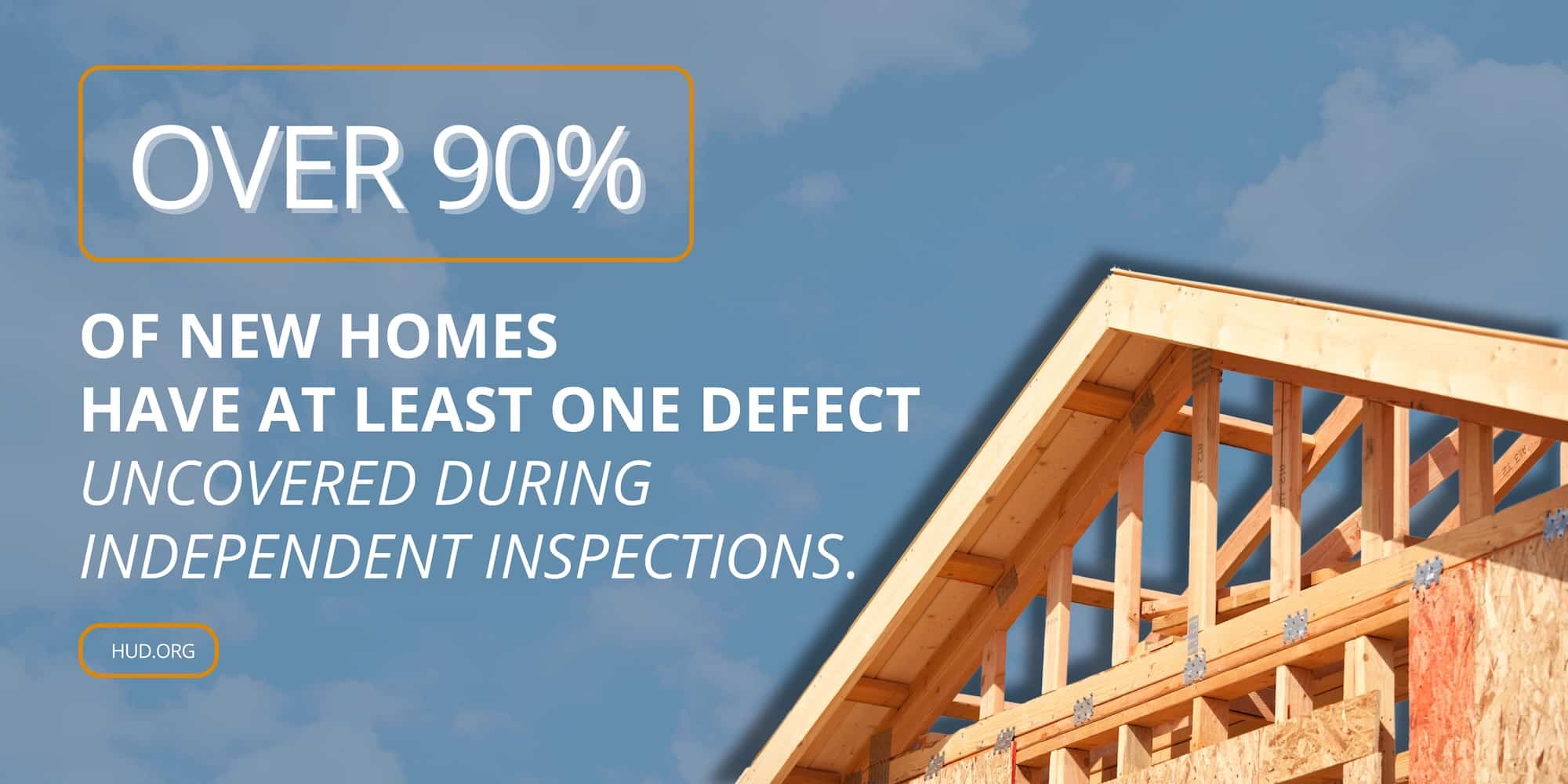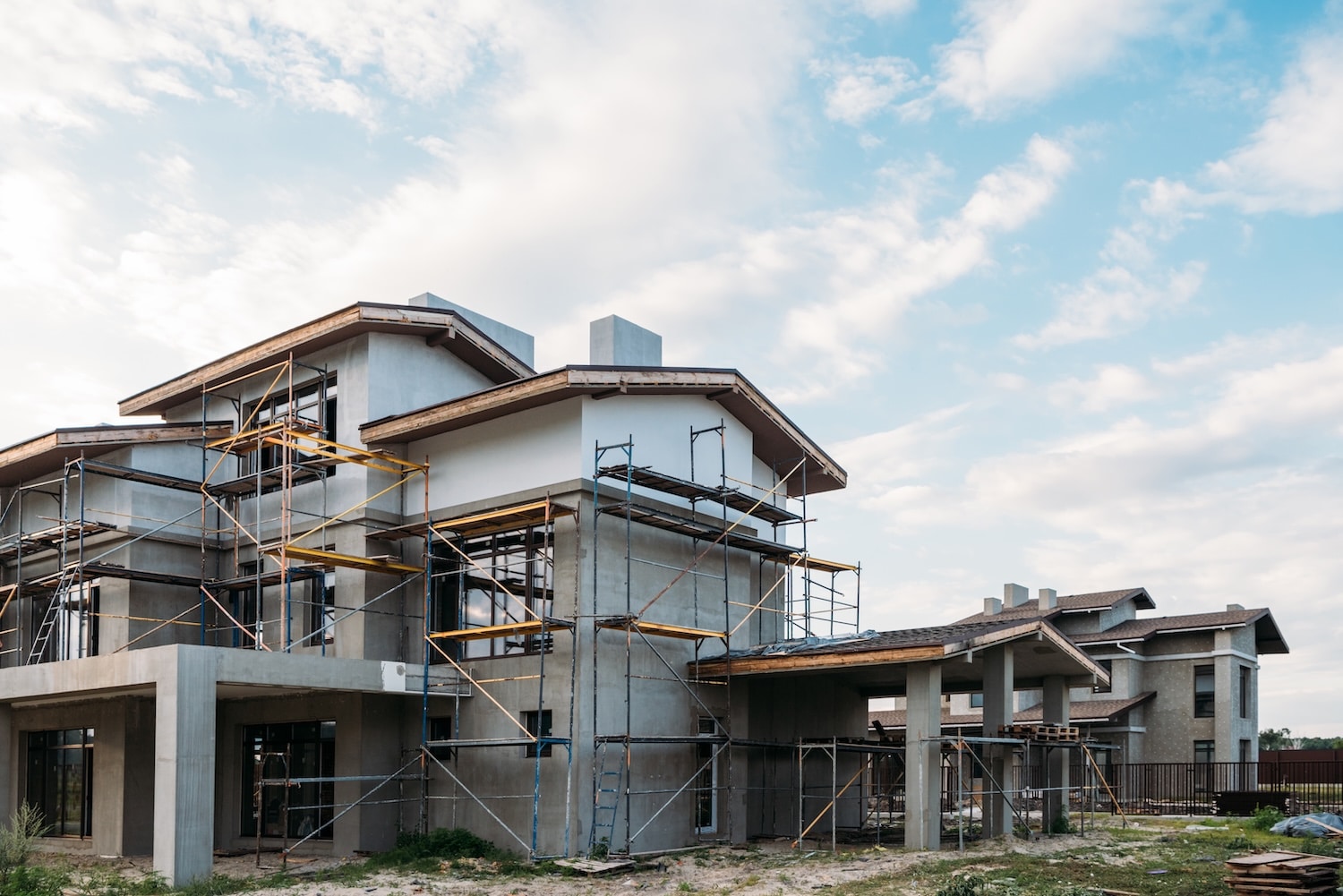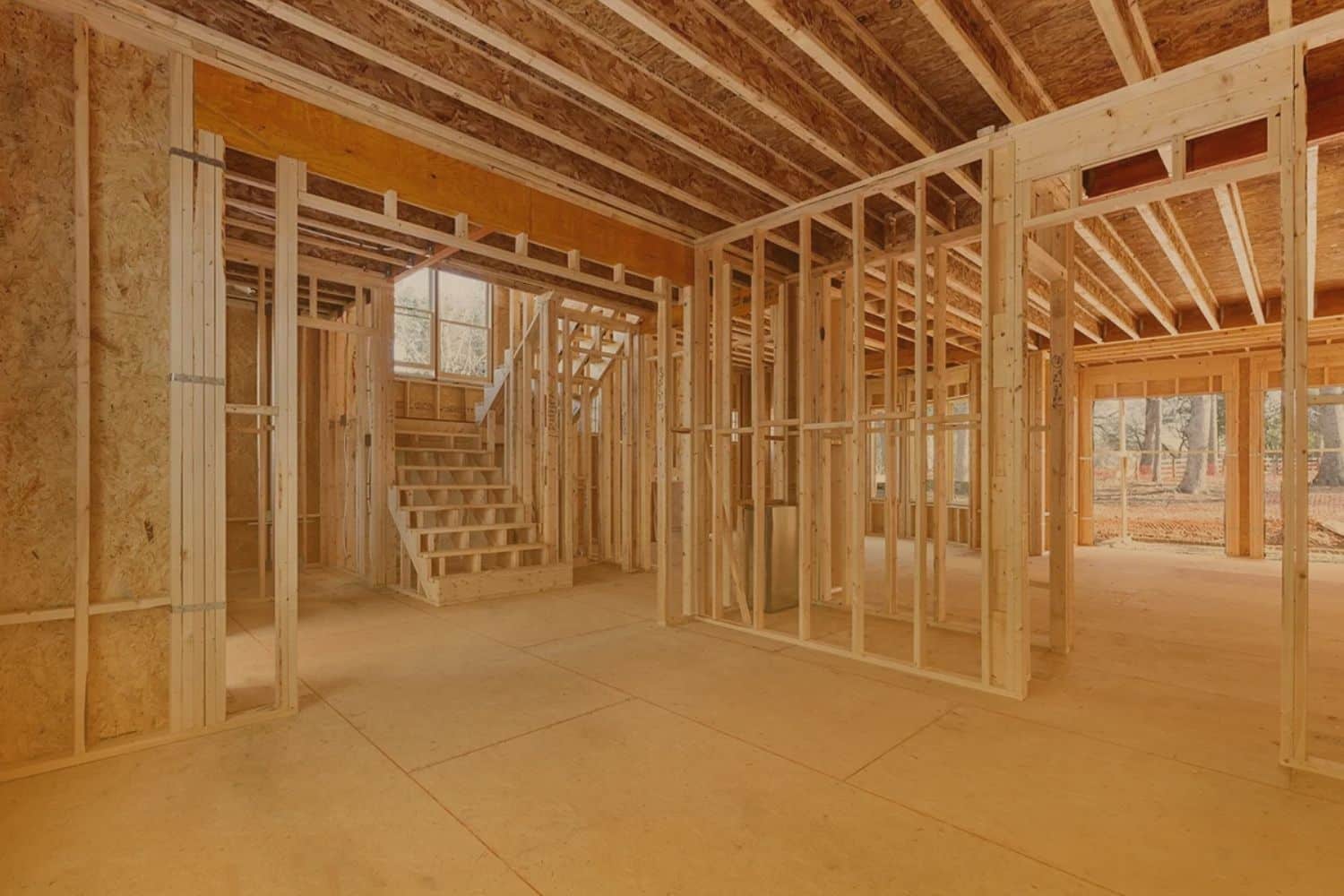During and after the construction of a new home, it’s easy to assume everything will be perfect. After all, it’s brand-new. What could go wrong? Actually, a lot.
We inspect new construction homes all the time in Naperville and nearby areas, and we can tell you this: just because a home is new doesn’t mean it’s problem-free. In fact, some of the biggest issues we find are in homes that haven’t even been lived in yet.
Here’s why new homes need professional inspections, and what a trained eye can help you avoid before it’s too late.

Builders Are Human
Homebuilders work fast. There are multiple crews on the job at any given time, each handling a different piece of the project. You’ve got framers, roofers, electricians, HVAC techs, plumbers, drywall installers, flooring contractors, painters, and more.
That’s a lot of moving parts. And with tight timelines and changing workers, mistakes are common. Over 95% of new homes have at least one defect uncovered during independent inspections.
We’ve found:
- Broken roof trusses
- Missing attic insulation
- Gaps in HVAC ducts
- Loose or leaking plumbing lines
- Damaged or poorly installed windows
- Incomplete caulking around entire houses, including trim, windows, and doors
-
Entire rooms with no electricity
-
Missing shingles on the roof
-
GFCI outlets not installed properly
-
A sewer line with a belly (low spot) and rocks creating a blockage
-
Leaking dishwashers
These are real issues that can lead to expensive repairs later. A new construction inspection can catch these before you close, so your builder can fix them under warranty.
Code Compliance Isn’t Everything
Many buyers think that since the home passed city code, it must be good to go. But local inspectors are only looking to confirm the bare minimum so they can proceed; that means quality or even safety can suffer.
City inspections are often brief, and they don’t always dig into the fine details. Some items may even get missed entirely if the inspection is rushed or scheduled before certain systems are fully installed.
Here’s what we do differently:
- We test every outlet, light switch, and fixture
- We inspect the roof, attic, and insulation
- We check drainage and grading outside the home
- We review the HVAC, water heater, and all major systems
- We verify appliance installation and safety features
- We examine the quality of materials and workmanship
Just because something “meets code” doesn’t mean it was done well. We’re not looking for shortcuts. We’re making sure your home is safe, sound, and ready for you to move in.

You Get One Chance to Catch Early Defects
Most buyers expect to enjoy their new home right away, but it often takes a few months for problems to show up. That’s why it’s so important to inspect before closing, and again before the one-year warranty expires.
Most new homes come with a one-year builder warranty. Around month 10 or 11, you should schedule an inspection to catch anything that’s changed or failed during that first year. This gives you time to submit warranty claims before coverage ends.
Also, heavy snow, ice, or storms can cause damage to new roofs, siding, and grading. If your home has been through a rough season, a quick inspection can help catch problems before they turn into bigger issues.
Other Times to Schedule a New Construction Inspection
Not every buyer gets in during construction. That’s okay. There are still smart times to bring in a home inspector after move-in.
Final Walkthrough Inspection
Before you close, an inspection gives you a complete picture of what’s working and what’s not. You’ll get a detailed report to take back to the builder for final repairs.
11-Month Warranty Inspection
Most new homes come with a one-year builder warranty. Around month 10 or 11, you should schedule a full inspection to catch anything that’s changed or failed during that first year. This gives you time to submit warranty claims before coverage ends.
Seasonal or Post-Storm Checkups
Heavy snow, ice, or storms can cause damage to new roofs, siding, and grading. If your home has been through a rough season, a quick inspection can help catch problems before they turn into bigger issues.
How to Make the Most of a New Construction Inspection
- Ask your builder early if they’ll allow third-party inspections. Most do, especially if you’re upfront.
- Schedule both a pre-drywall and final inspection for full coverage.
- Be present if you can. Walk the home with your inspector and ask questions.
- Use the inspection report to follow up with your builder. A clear report with photos and notes helps move repairs along faster.
When to Call Us
If you’re under contract on a new build, just getting started with construction of a new home, or even a few months into homeownership, we can help. At Prospective, we specialize in new construction inspections and know what to look for at every phase.
We’re not here to make your builder look bad. We’re here to make sure you get the home you’re paying for; one that’s safe, complete, and built to last.
Conclusion
A new construction home doesn’t mean perfection. A third-party inspection gives you peace of mind, helps you catch real problems before they cost you money, and makes sure your home is truly move-in ready.
If you’re building in Naperville or anywhere nearby, don’t skip the inspection. Reach out to Prospective Home Inspections and we’ll make sure your new home starts off strong.






